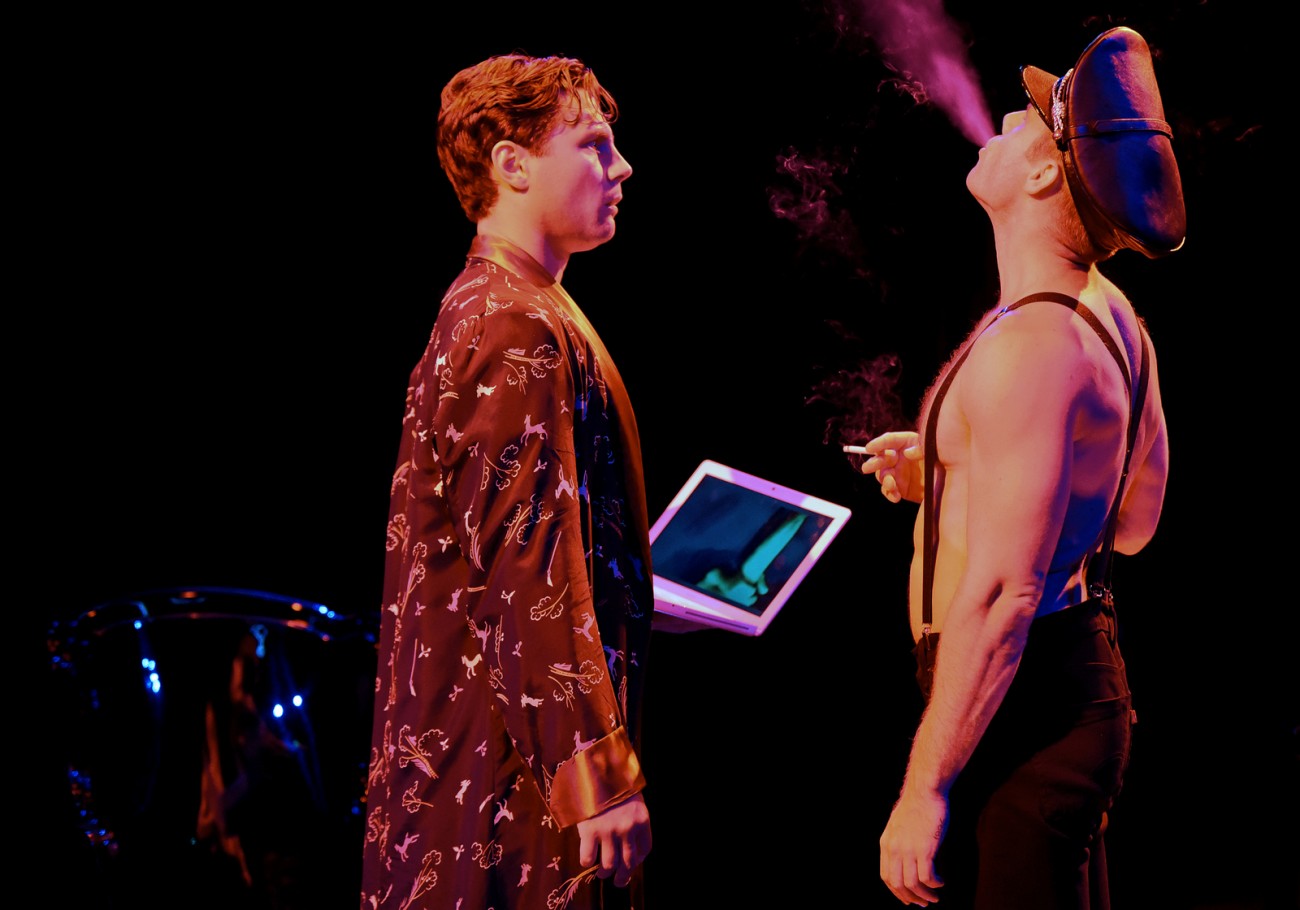Inside its Lovelace Theater space, The Wallis has constructed an ingenious crystal boîte, an infinity mirror of a stage surrounded by witnesses in close proximity. “Theater in the round” is the usual term, but in the case of director and designer Michael Arden’s brilliant new production of THE PRIDE—a Los Angeles premiere at the Wallis—“drama cubed” are the operative words for all involved.
Although playwright Alexi Kaye Campbell doesn’t belabor the point, THE PRIDE falls very much within the tradition of the British ghost story. Surfacing in literature, if not in life, at the most opportune moments, these conjured phantoms—exponents of damage and dread—serve a different purpose in THE PRIDE: as a prod toward self-revelation. A skeletal finger points the way, and if we’re brave enough to follow its indicated course, we may, eventually, learn enough to “get it right.”
The play opens with cocktails in a London drawing room in the late 1950s, but the only thing the three main characters are getting right is the Coward-esque repartee they employ to disguise everything they might actually be thinking or feeling. Whether these are desperate apparitions projecting a bourgeois illusion, or middle-class shells protecting their own ghosts, something is rotten in Pimlico.
Sylvia (Jessica Collins, riveting) is a book illustrator entertaining the author she’s currently working for, Oliver (Augustus Prew, a dignified, heart-wrenching clown). They’re joined by Sylvia’s realtor husband Philip (Neal Bledsoe), and it is telegraphed that Oliver and Philip recognize an immediate attraction for one another—which, for Philip, means repulsion.
When a figure of transition and transgression (Matthew Wilkas) enters the scene, the action shifts to the present day (the play was written in 2008). The new Oliver and Philip (the same age as their antecedents from 50 years earlier) are boyfriends on the verge of divorce, and Sylvia is their best friend and, in particular, Oliver’s sounding board. Contemporary Oliver is a sex addict with a dangerous need to debase himself with rough trade (or hustlers hired to portray the type). He’s not sure why he can’t break this destructive pattern, or even how it started in the first place. It may be connected to a voice he often hears in his head. Nevertheless, he invariably finds himself on his knees in front of strange men, and Philip has had enough.
The subsequent scenes alternate between 1958 and 2008, the past informing the present, the future a premonition of honesty too fantastic to contemplate—although Sylvia (who, after all, wasted a life with a closeted husband) does seem to grasp the effort, the sheer consciousness it will take to rid herself and her friends of their delusions.
Whether we are seeking liberation, or a quiet corner to hide in, we are often encouraged to ignore the opinions of those who would seem to stifle the expression of our individuality. One of the many questions this very intelligent play raises is: What happens when “I don’t care what they think” goes too far? When identity shades into alienation? As the three protagonists of THE PRIDE amply demonstrate, a voice without an echo is lost.
Through July 9.
Nightly Tuesdays through Saturdays; matinees on Saturday and Sunday.
Dark July 1–4.
Wallis Annenberg Center for the Performing Arts
9390 Santa Monica Boulevard, Beverly Hills.
From top:
Augustus Prew and Neal Bledsoe.
Jessica Collins.
Matthew Wilkas and Prew.
Bledsoe and Collins.
Prew and Wilkas.
All photographs by Kevin Parry, Wallis Annenberg Center for the Performing Arts.






